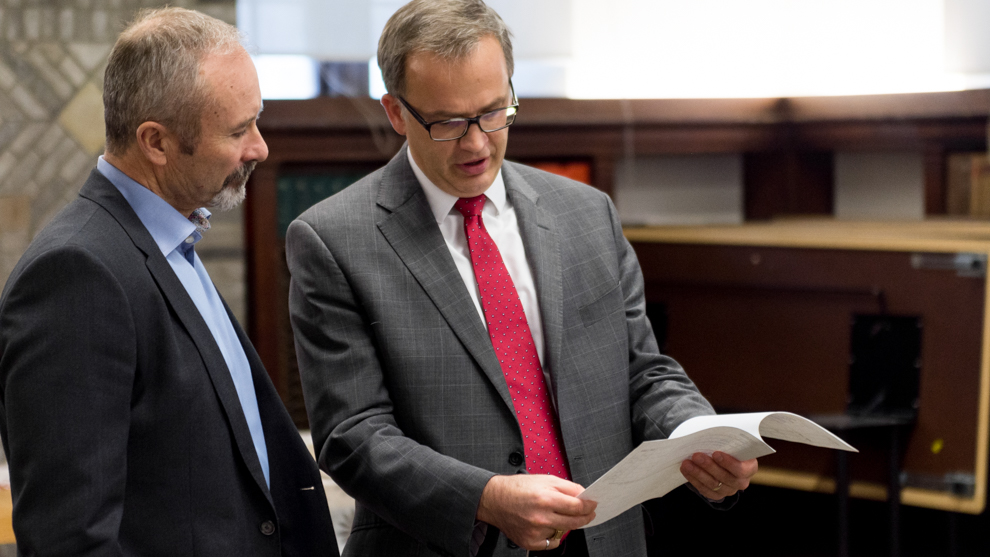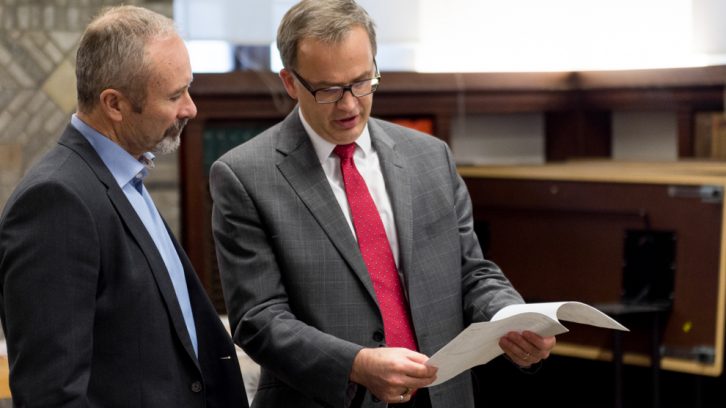Education
Dalhousie president shares lessons from MIT trip
University ‘mostly’ done fundraising to recoup money for entrepreneurship workshops

caption
Dalhousie president Richard Florizone and Board of Governors chair Lawrence Stordy going over the agenda before the meeting.
caption
Dalhousie president Richard Florizone and Board of Governors chair Lawrence Stordy go over the agenda before the meeting.A team of Nova Scotia executives has participated in a MIT entrepreneurial program paid for by Dalhousie, which university president Richard Florizone said will benefit future students.
The program, Regional Entrepreneurship Acceleration Program (REAP), is composed of four workshops that take place every six months. The first one took place from Oct. 17 to 19.
Florizone, the regional champion overseeing the Nova Scotia team, gave an update to the Dalhousie board of governors on Tuesday.
His presentation was done in tandem with Tracy Kitch, president and CEO of the IWK Health Centre, one of the executives sent to MIT. They highlighted things that they learned from the workshop, but also addressed concerns from the board members.
“As strong as our core team is, as Richard said, it is not inclusive and it is not meant to be inclusive,” Kitch said during the meeting. “It’s a core team that is going to do a lot of the heavy-lifting, but the success of MIT REAP will be about that: collaboration, those partnerships, that inclusivity and the collective impact that we’d have on this region.”
Some of the other team members include Chris Huskilson, CEO of Emera; John Risley, co-founder of Clearwater Fine Foods; and Murray Coolican, Nova Scotia’s deputy minister of business.
Kitch said there’s value to the MIT program, citing the link between the life sciences and the IWK as an example.
“When we think about our scientific community and the future generation of health-care professionals, we need these kinds of environments that would help foster their creativity and culture of innovation,” she said.
Bart Soroka, board of governors representative for the Dalhousie Student Union, raised some concerns during the meeting.
“I still have to address what’s an elephant in the room for me,” Soroka said, adding that the university should have “consultations with students to understand what [REAP] is actually about.”
Soroka was referring to student reactions when they heard that the program costs $300,000 US and Dalhousie paid the bill upfront instead of waiting for external funders.
Florizone updated board members on the cost recouping process, saying that “most of it has been raised.”
“From the university’s perspective, this is about the students,” he said. “I wouldn’t do this unless I thought it would yield great things for the students, and I believe it will.”

